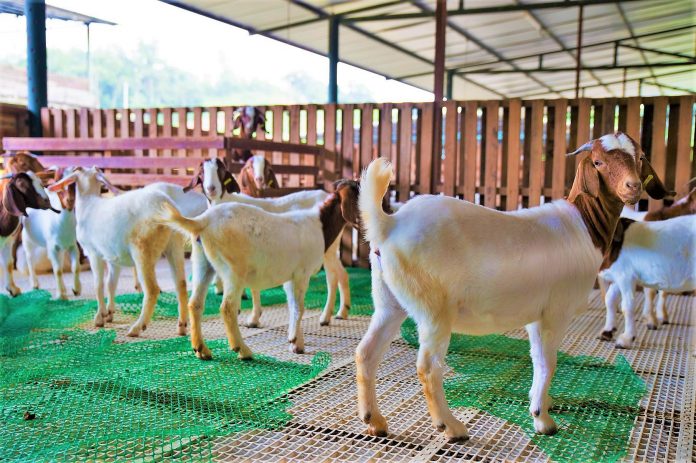Brugoat Farming and Trading is targeting exporting livestock to East Malaysia after successfully completing Brunei’s first live supply of 100 boer goats to Bintulu, Sarawak last year.
Director of Brugoat Philip Ong Chee Leong said that export will be the company’s priority once local supply – especially for the Islamic sacrificial ceremonies Korban and Aqiqah – have been stabilised.
Brugoat, located over a three-acre site in Kg Gana, Sg Liang, began breeding in 2015 with 1,200 premium dorper sheep and boers imported from Australia. They’re now operating near maximum capacity with 3,100 livestock; 70 percent dorpers and the remaining boers.
“In 2017 (which included some supply from 2016) we were able to sell about 600 heads, 100 which was exported (by road) to Bintulu,” said Philip. “This year, we are on track to exceed 600.”
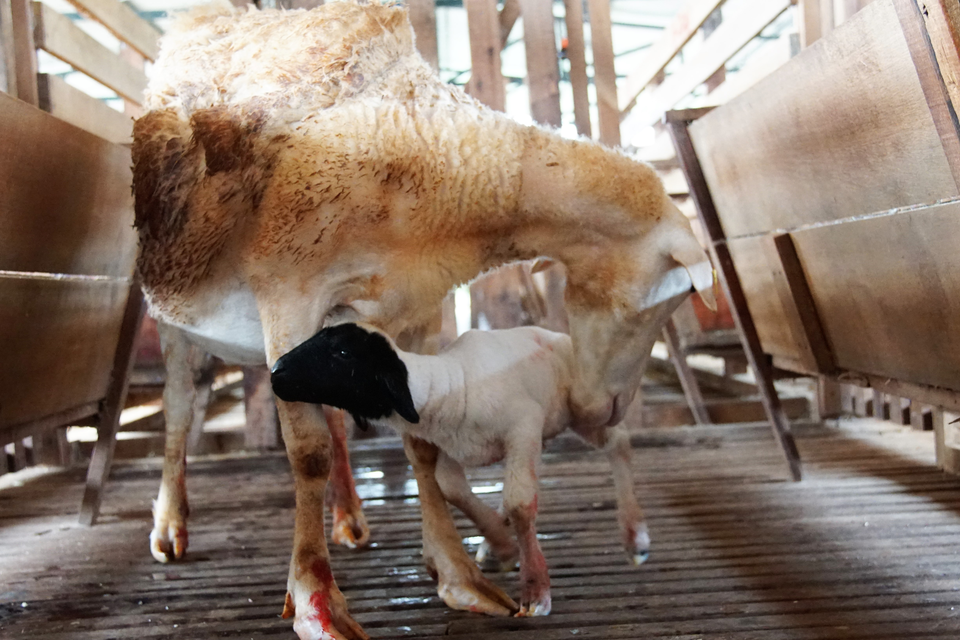
Looking for self-sufficiency
According to Agriculture and Agrifood Statistics, Brunei slaughtered 1,121 goats, 862 which were locally supplied in 2017. But goat farming, which is currently Brunei’s most self-sufficient category of livestock at 65% – wasn’t always popular. In 2009, local supply contributed just 3.5% of all goat consumption.
“I was listening to the radio a few years ago and they mentioned how Brunei had imported 600 goats from Australia for the Korban (sacrifice) ceremony for Hari Raya Aidiladha,” recalled Philip. “I sat down with my father and we discussed, would it be possible to breed (Australian) goats and sheep here?”
Ong Chek Thiam, Philip’s father and the founder of Soon Lee began his entrepreneurial journey with a single poultry farm almost 40 years ago. He grew the business to become Brunei’s largest producer of chicken meat and second largest of eggs, playing a key role in the country’s near 100% self-sufficiency in poultry.
And while the Soon Lee group has since diversified into machinery, retail, properties and restaurants, Ong – who has kept a very low public profile – continued to spend time farming, rearing a small batch of 100 local goats years before Brugoat was set up.
“When I came back (from studying) from Australia in 2007 my dad was still rearing goats as a hobby,” says Philip. “He gave his full backing to start Brugoat.”
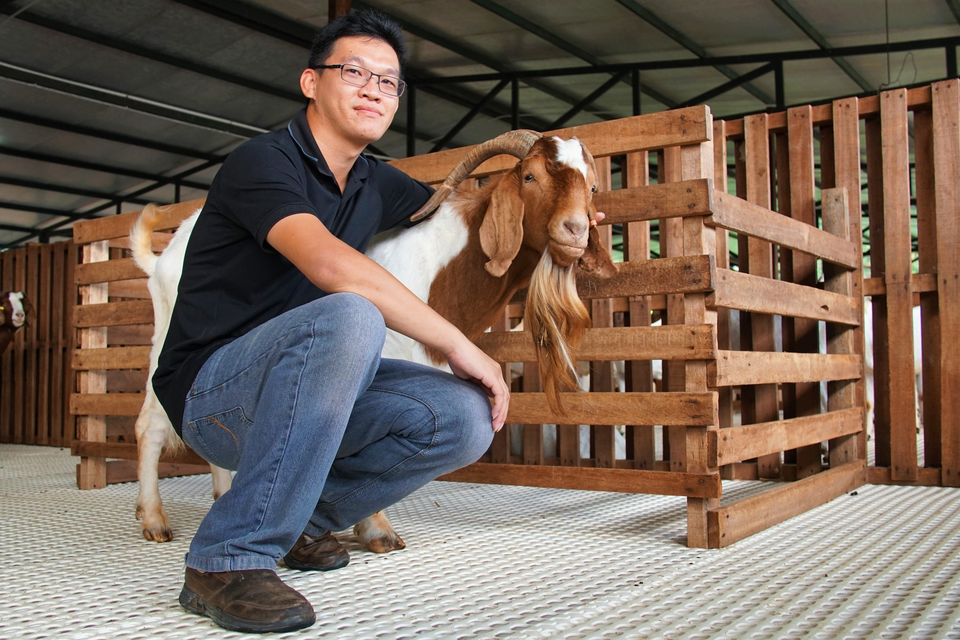
Nine tonnes of grass daily
While a broiler chicken’s diet composes mostly of processed feed and is ready for slaughter in under two months, rearing livestock is a more elaborate endeavor. Philip says sheep, then goats followed by cattle, take the longest to breed.
Livestock for sacrificial slaughter in Islam also carries specific requirements; the animals should be in good health, free of disability or handicap and reach “maturity” – the exact age however differs based on jurisdiction.
Philip’s justification for breeding dorpers and boers comes down to their value – both are amongst the most sought-after commercial goats and sheep.
Boers are lean, with less cholesterol than chicken, while dorpers – like most sheep – are higher in fat and are typically marketed as prime lamb; often described as sweet, succulent and of less “gamey” flavour.
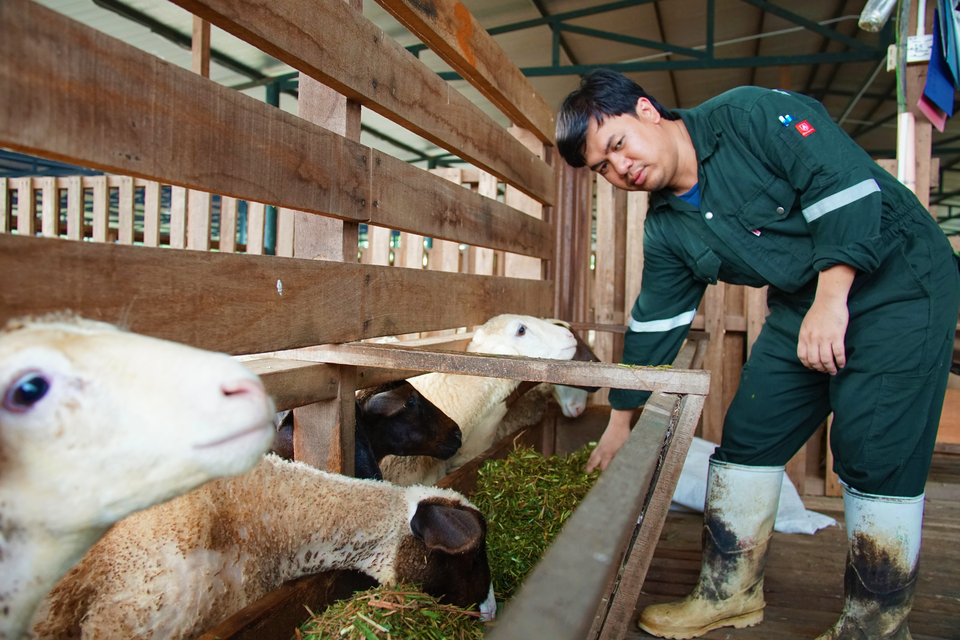
Brugoat has nine sheds – two nurseries and seven for breeding – built more than a metre above ground to allow feces to be cleaned efficiently. Each shed has 16 to 20 pens or rooms, occupied by 20 to 30 females and one male during the three month mating season. All the livestock are documented and tagged to ensure inbreeding is kept to a minimum.
And the end of mating season, females are given an ultrasound, and if pregnant are relocated to a pregnancy-only pen where they serve their gestation term of five to six months.
After delivery, the mother and her baby are sent to a kidding pen for two weeks, before brought back to the regular pen where they spend another six weeks together before being separated.
The bulk of the livestock’s diet is grass – preferably of the Napier variety – in addition to supplementary pellets dense in protein and a mineral block that’s licked.
“One of our biggest challenges is a consistent supply of quality grass,” says Phil as he points to the surrounding perimeter of Brugoat, where the majority of grass is planted. “We need more than nine tonnes daily.”
Brugoat has another site in Sg Liang growing grass, and the Belait District Office has given permission for them to cut tall grass at several locations in the district. But Phil says they must be careful in harvesting wild grass, as there is a risk of parasites that are brought by wild boar and buffalo.
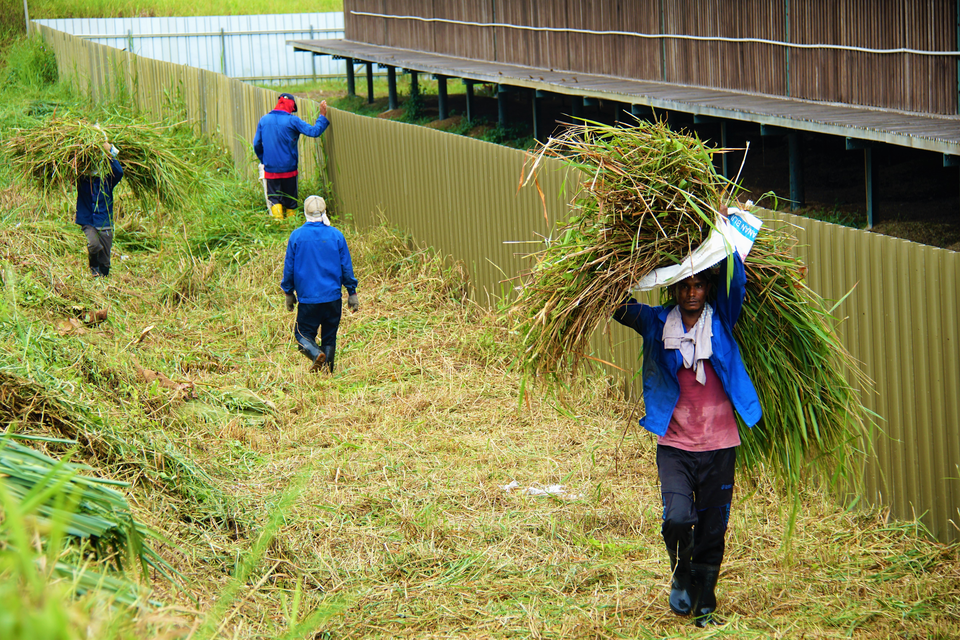
Slaughterhouse and new pens
5,000 goats and sheep has been Brugoat’s short-term target since inception, a figure its founders’ estimate will enable the company to meet local demand with room for a steady supply of initial export. But achieving this capacity will require an expanded area with an additional five to seven sheds.
Brugoat has already incurred $3 million to begin operations and costs have since swelled to $5 million, as the learning curve to manage the business – especially in breeding and manpower – has proven to be steep.
“Even though we have experience in poultry, breeding this livestock is a completely new challenge for us,” says Philip.
“We’ve had to fly in consultants (from Australia) in husbandry. The right quality for food, conditions for breeding, dealing with illnesses, often there isn’t a perfect (one-size-fits-all) answer, and we must learn quickly. It is not an easy market to be in. In Borneo, there are only a handful breeding dorper commercially.”

Philip says Brugoat’s new sheds will have to be within the vicinity of their current site to keep costs manageable and are seeking permission from the government to use the area directly in front of their farm.
They’re also in the final stages of getting approval to operate a slaughterhouse on site, which will enable them to market directly to customers looking for slaughtered over live animals.
“So far our supply has been live goats and sheep to five businesses (who slaughter) and individual buyers and farmers,” said Philip. “The slaughterhouse will be a value addition service for us.”
Brugoat in supermarkets?
Although Brugoat is an independently registered company, it has a natural advantage to penetrate Soon Lee’s retail chain. In fact, the recurring question Philip and his team are often asked by visitors is when will we be able to buy Brugoat’s meat in supermarkets?
“Unfortunately we cannot compete in the chilled and frozen meat market at the moment,” Phil admitted. He cited frozen lamb from Australia as an example, which has already incurred costs for slaughtering, cutting and cleaning, retailing as low as $9.90 a kilogramme.
Premium breeds of live goat or sheep however can command $15 per kg for males, and $20 for females. An adult full-blood – an animal whose ancestral lineage is entirely within the same breed – can fetch $1,000 to $2,000.
“Right now our focus must be to use our logistical advantage to compete in supplying animals for sacrificial slaughter in Brunei and to countries nearest to us,” he added. “We have incurred a lot of costs to try this new business and we need to be financially sustainable. From there we will be able to explore more opportunities for Brugoat.”
Watch: An inside look at Brugoat’s farm
Brugoat is located at Lot 3388, Spg 1150 in Kg Gana, Sg Liang, Belait. To inquire or make a purchase contact +6738739799 or +6738738892.


